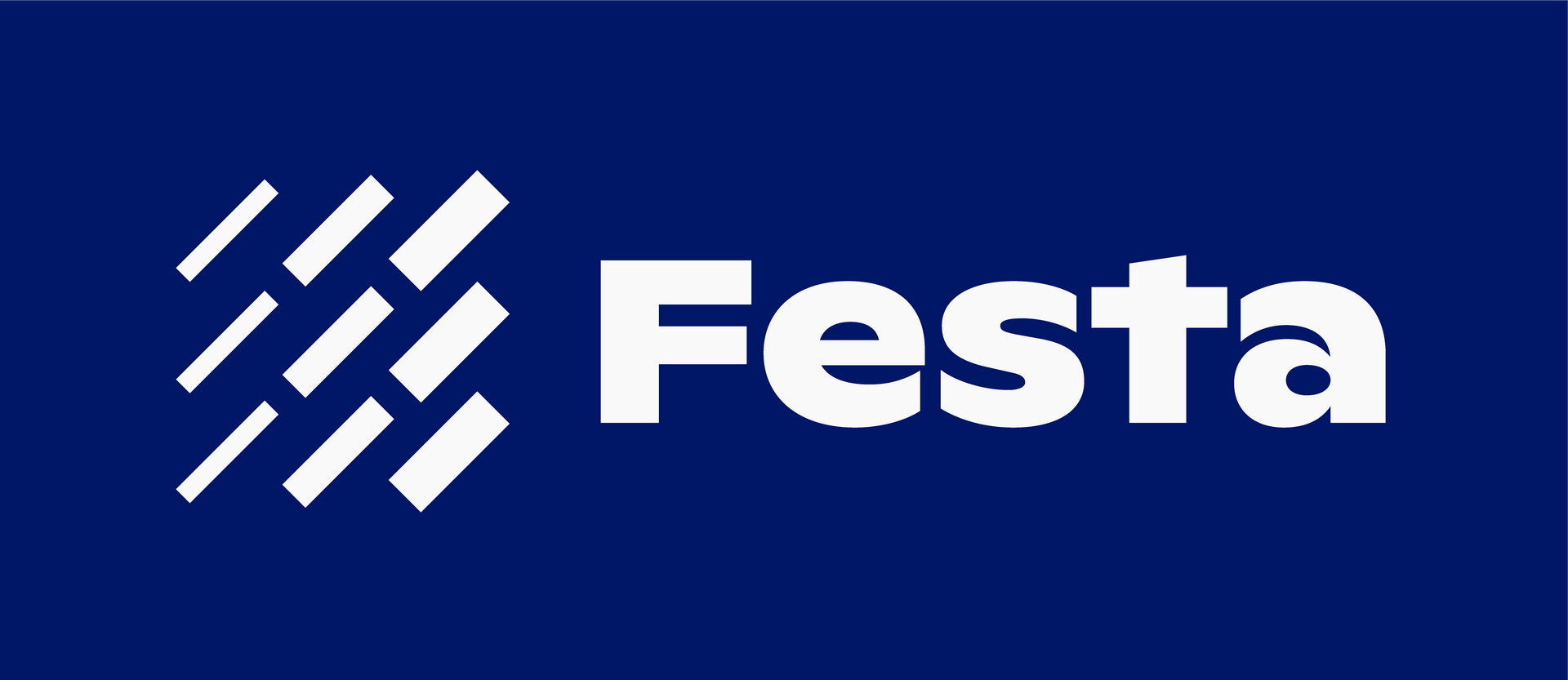Auratal: Hagnaður af sjálfbærni
Marel Áhugi fjárfesta eykst með sjálfbærum viðskiptalausnum
Grunnhugmyndin á bakvið Marel er að umbylta því hvernig matvæli eru unnin á heimsvísu, með það markmið að auka sjálfbærni, gæði, og hagkvæmni matvæla og tryggja öryggi og rekjanleika. Fyrirtækið er flestum kunnugt á Íslandi, ekki aðeins fyrir þróun á áður óséðum hátækni lausnum og hugbúnaði og sem einstakt dæmi um íslenskt hugvit heldur fyrir það að teljast fyrirmyndarfyrirtæki þegar kemur að samfélagslegri ábyrgð og sjálfbærni. Það var því sérstaklega áhugavert að setjast niður með Guðbjörgu Heiðu Guðmundsdóttur, framkvæmdastjóra Marel á Íslandi og Þorsteini Kára Jónssyni, verkefnastjóra, sem er jafnframt einn helsti sérfræðingur Íslands í samfélagslegri ábyrgð fyrirtækja, til að ræða ávinning af sjálfbærni og hvað Marel hefur sett á oddinn á undanförnum árum þegar kemur að því að mæla árangur þegar kemur að samfélagsábyrgð.
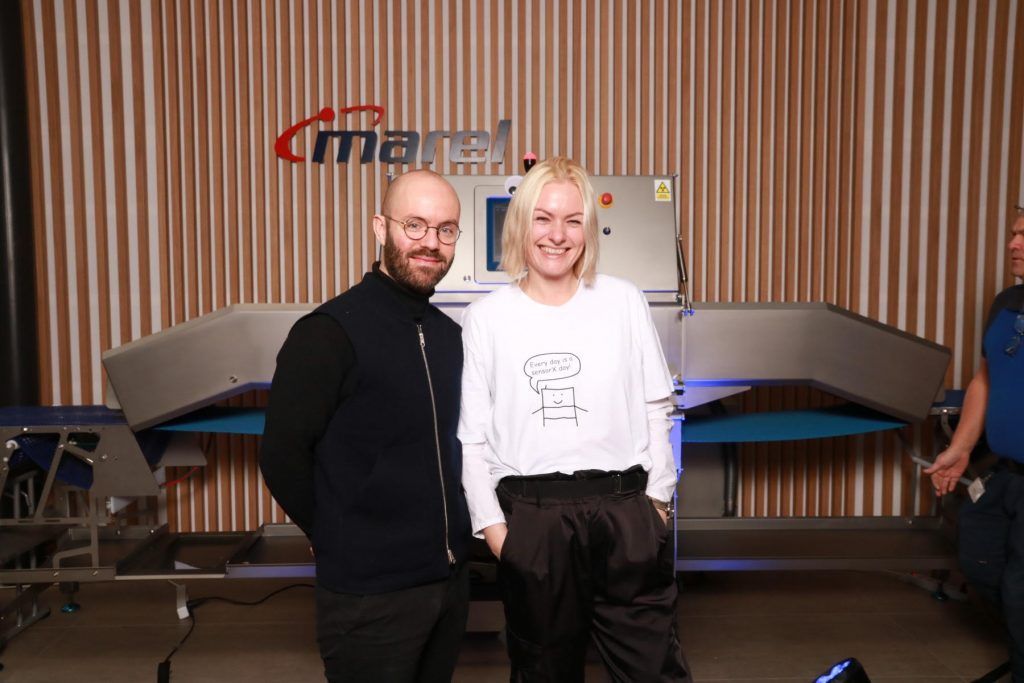
Guðbjörg Heiða og Þorsteinn Kári vinna náið saman að því að auka sjálfbærni hjá Marel á Íslandi.
„Besti mögulegi rekstur er að geta haft raunveruleg áhrif í samfélaginu. Þegar þú ert að takast á við raunveruleg vandamál og getur breytt því hvernig þau eru tækluð, það er og verður besta viðskiptatækifæri sem þú getur fengið,“ segir Þorsteinn Kári og setur þar með tóninn fyrir spjallið. Marel lítur ekki á samfélagslega ábyrgð sem aðskilinn hluta starfseminnar heldur hefur frá upphafi markmiðið um sjálfbærni verið grundvallaratriði í sýn fyrirtækisins á sitt hlutverk í samfélaginu.
"We are increasing the utilization, quality, safety, and traceability of food and automating the environment in food processing. That is essentially the foundation for sustainability in food processing. As was stated the other day at an investor presentation, growth and financial benefits and being sustainable go hand in hand. That is how it is for us," adds Guðbjörg Heiða. They cite as an example that since Marel's first product, an electronic marine scale that could weigh accurately in rough seas and collect data on the weight of the catch in a central system, came to market, there has been a revolution in how seafood is utilized. This targeted activity by Marel from the beginning and by other companies in the fisheries sector has reduced food waste in the fisheries sector. Þorsteinn draws a picture of a bar graph with figures from the Food and Agriculture Organization of the United Nations (FAO) where it is clearly seen that fish is the food product that is wasted the least on average, not only in Europe but across continents.
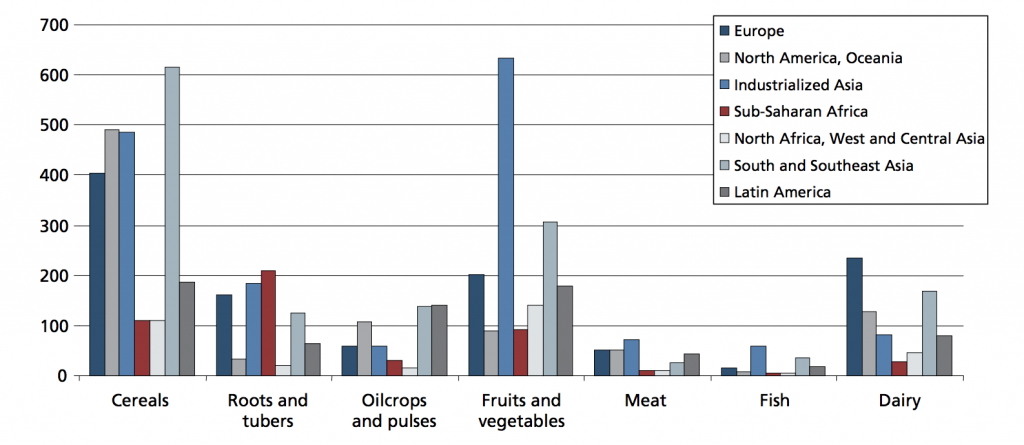
Another interesting project that Marel is currently working on is to be able to calculate the carbon footprint of solutions so that it will be possible to make it easier for customers to understand and even carbon offset the impact of their operations over the life of the machines. This will make it easier for companies that buy machines from them to collect the necessary data to publish a detailed report on the company's environmental impact. "When the customer buys from us, our partner, we can say what the carbon footprint is over the life of the solution. Guðbjörg and I have found that a focus on environmentally friendly business solutions increases the interest of investors and customers in doing business with Marel.
„Þegar margir af okkar viðskiptavinum, eru að horfa á hverjum þeir vilja kaupa lausnir af, þá eru þeir farnir að skoða sjálfbærni sem hluta af heildarmyndinni.“
Guðbjörg cites a recent example, as Marel recently began a collaboration with the wholesaler Costco in the United States, which was based entirely on the fact that the high-tech solutions that Marel offers contribute to less waste, a lower carbon footprint and maximum product utilization. The project in question is a groundbreaking high-tech factory in Nebraska, USA, for chicken processing, with a processing capacity of 2 million chickens per week. The processing is fully equipped with high-tech solutions and software from Marel that cover the entire processing process, from live bird to consumer product. All waste is extremely costly for companies, not least when it comes to large-scale operations. “Therefore, there is a great opportunity to work in close collaboration with our customers to optimize every single process in food processing in order to maximize the utilization of valuable raw materials – this is in the common interests of us, customers, consumers, investors and society,” says Guðbjörg.
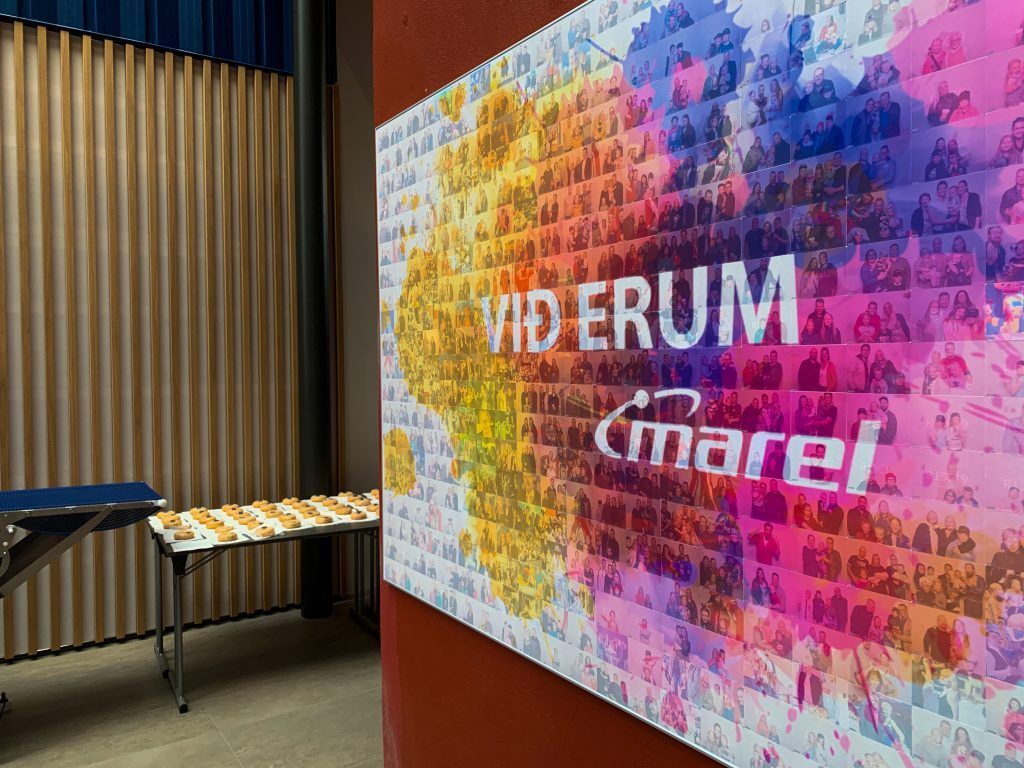
The company's strategy is to further increase the role of so-called sustainable product development, but today all ideas in product development at Marel must include information on how the product will impact society and the environment. "For example, when you are designing the factory, we look at how much water you need to clean it, how much energy you need to run the factory, there are a lot of factors that we can influence in our product development, such as affecting the carbon footprint over the life of the device," explains Guðbjörg, adding that the discussion regarding the life of the device is still in its infancy and that international standards need to be defined.
In addition to these fundamental aspects of the company's operations, Marel has worked systematically to take its corporate social responsibility policy seriously. A comprehensive policy was published in 2015, which is based on the ESG or UFS guidelines of the Icelandic Stock Exchange and covers environmental, social and governance aspects. "We are not reinventing the wheel there, we are just taking that policy and deepening it for ourselves," says Guðbjörg, adding that the understanding of the meaning of the term corporate social responsibility is constantly increasing.
"As understanding deepens, opportunities become even greater."
Þorsteinn adds that it is one thing for the company to have a positive impact on the environment and society, but "the other thing is to dig deeper, look inward and see where we stand and how we can systematically work to improve ourselves." He says that measurements and international standards are important when it comes to sustainability in the private sector, as companies can then compare their results, both internally between years and with each other.
Thus, it has become mandatory for companies of a certain size to collect data on their impact on society and publish an ESG report. Otherwise, the Director of Internal Revenue has the authority to refuse to accept the company's annual accounts. "That's one thing, another is that companies listed on a market abroad have to comply with the European Directive on Non-Financial Information." He foresees that in the coming years, regulations and legal requirements surrounding corporate social responsibility will increase, so it is beneficial for the company to have started measuring early. "Then it's not just a question of cost or financial benefit, but just doing what you need to do to operate in accordance with the rules. Meet the minimum requirements to be able to run a company," says Þorsteinn. "There needs to be a balance between these, we see social responsibility as a business opportunity in many ways; talking to shareholders, talking to potential shareholders, talking to our customers. The importance of social responsibility in Marel's operations is no less what fills our employees, who today number over 6,000 people in over 30 countries, with pride and inspires us to take on the task of revolutionizing food production globally. But then it's just that you have to meet certain conditions too."
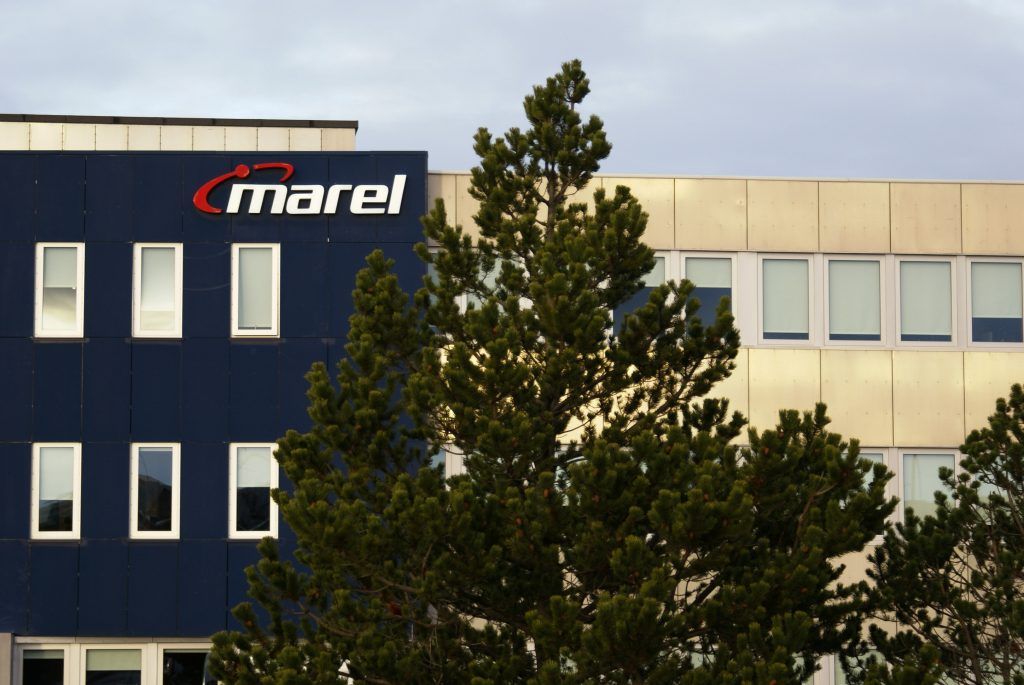
The benefits of Marel's social responsibility are also manifested in various ways that are impossible to quantify. "We are measuring all kinds of things for us, but I know that often it is the intangible aspects that have great value," says Guðbjörg. "For example; Marel is a large company in Iceland that has achieved great success. Just as Björk and Sigurrós introduced Iceland as a nation of music, companies like Marel and Össur have shown that we are an inventive nation. The social benefit of something like that? I don't know how to put it into money, but I think it is very large - having a role model in your community." She then mentions that it is impossible to quantify how the knowledge that is hidden in-house, for example in product development and operation of a company that sells products all over the world, is used to build society. Marel tries in every way to participate in innovation competitions to share engineering knowledge, and Guðbjörg and Þorsteinn sit on a number of business committees where their knowledge of systems, processes and policies is useful to other companies. They also mention that employee dedication to their work increases when people feel a sense of purpose in their work.
Jafnvel þó Guðbjörg og Þorsteinn fari ekki varhluta af mikilvægi þess að leggja ríka áherslu á samfélagslega ábyrgð taka þau fram að ekki megi afmarka hana um of heldur sé hugtakið samofið tilgangi fyrirtækja. Sú umræða sé sífellt að þroskast. „Þetta er hluti af því hvernig heimurinn er að læra að reka fyrirtæki betur“ segir Þorsteinn.
"There are enormous opportunities today to change things for the better," says Guðbjörg Heiða.




